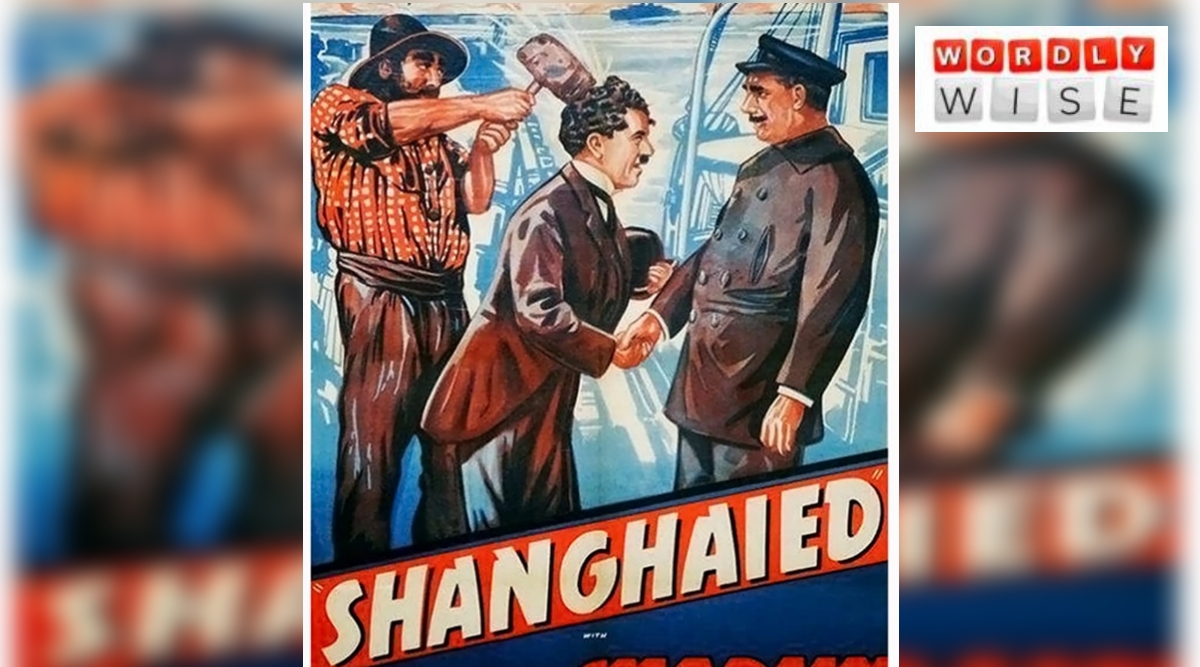Balkanization, Shanghaied, Bangalored… are you familiar with these toponyms?
Toponyms are words derived from the name of a place or geographical location.
 Shanghaied (1915) is an iconic Charlie Chaplin film in which the protagonist gets Shanghaied by the father of his lover. (Wikimedia Commons)
Shanghaied (1915) is an iconic Charlie Chaplin film in which the protagonist gets Shanghaied by the father of his lover. (Wikimedia Commons) We know what an eponym is. Remember ‘Murraya’ from the last week? Now we take a look at toponyms. A toponym is a word formed from the name of a place, which may denote a habitation or certain physical features of a landscape or anything specifically associated with a location.
First, let’s get the context.
After the first round win in the French Open, the tournament he eventually went on to win, Novak Djokovic courted controversy by his remark on Kosovo. During the post-match media interaction, he wrote on a TV camera: “Kosovo is the heart of Serbia. Stop the violence”.
So, what was he referring to?
Serbia, the country which Novak belongs to, is a part of the Balkan Peninsula. The region in the southeastern Europe takes its name from the Balkan Mountains. Countries in the region were once under the Ottoman and Hapsburg Empires. The rise of nationalism in Western Europe in the 19th centuries saw Balkan countries eventually establishing independent nation-states.
Serbia was one of the six republics of a federation called Yugoslavia that came into existence at the end of the 2nd World War. The other five were Croatia, Montenegro, Slovenia, Bosnia-Herzegovina and Macedonia. Although Kosovo was a province of Serbia, it had autonomous status. In 1989, newly elected Serbian president stripped Kosovo of its autonomy. This led to protests by ethnic Albanians in Kosovo, who boycotted all Serbian institutions and set up their own shadow government.
Meanwhile, Yugoslavia became embroiled in a civil war after some republics seceded. Yugoslavia disintegrated by 1992 and completely ceased to exist in 2003, when its largest successor state took on the name of Serbia and Montenegro.
In February 2008, Kosovo declared its independence from Serbia. Although some countries recognise Kosovo’s independence, Serbia does not. A centre of Serbian culture and society over the course of several hundred years, Novak and thousands of Serbs like him still consider Kosovo as integral part of their country.
The region because of its political history of disintegrating into warring entities has given the toponym balkanize. A verb, it means “to divide into small and mutually hostile groups.” It is said to have been coined by English editor James Louis Garvin, but A.J. Toynbee (1922) credited it to German socialists, who used the term to describe the results of the treaty of Brest-Litovsk. The reference was to the political situation in the Balkans, when the European section of the Ottoman Empire melted into small, warring nations. The noun form is balkanization.
A couple of interesting words have come from Lacedaemon, later Laconia, a city-state in ancient Greece of which Sparta was the main settlement. The Spartans were noted for saying the most in the smallest possible number of words. According to an anecdote, when the Persian invader Xerxes demanded that the Spartan leader Leonidas surrender his weapons, the latter replied, “Come and take them.” Another is about King Archelaus of Macedonia who was asked by a barber how he wanted to have his hair trimmed. The king laconically answered, “In silence.”
Such economy of words is called a laconism after the name of the Spartans’ homeland; the adjective is laconic. The Spartans were not only frugal in speech but in lifestyle too. They led a tough life devoid of pleasure-seeking habits. Spartan, as an adjective, therefore, means someone who leads a disciplined life with minimum of creature comforts.
A similar coinage is stoic which is derived from the name of a place that still exists as a reconstructed site, the Stoa, a colonnade, or portico, in Athens. Here the philosopher Zeno founded a school in 308 B.C. One of the principles of stoicism is that the wise man should be free from passion, untouched by joy or grief, and submissive to natural law. In modern use, a person who controls his emotions under stress, who endures the hardships of life without complaining, is said to possess stoic, or stoical resignation.
Used in informal speech, shanghai as a verb means to trick or coerce someone into a place or position or into doing something. It comes from Shanghai, a port city in China, where men were compelled by drugging and other deceitful means to serve on ships sailing to Far East. So, if you get shanghaied, you realize you have been tricked into something that leaves you in a disadvantageous situation.
With the information technology boom in Indian cities, came an American coinage, bangalored. It refers to a situation where an American IT professional has lost a job because the same has moved to a cheaper labour market.
In fact, the list can never be exhaustive. A large number of words in daily use owe their coinage to names of places. Words like badminton, hamburger, champagne, cheddar, marathon, jersey, cardigan, etc., are all toponyms.
- 01
- 02
- 03
- 04
- 05






































